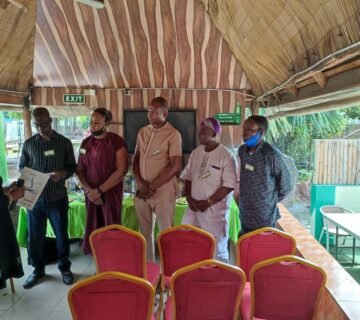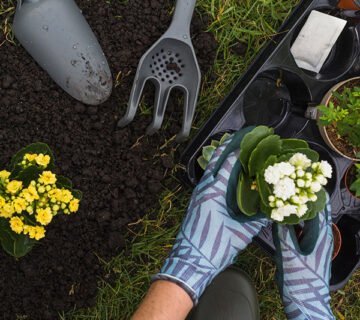This is one of the most popular hedges till late 1980s, but rarely found in the Nigerian landscaping projects today, despite its dense and rugged characteristics. It was a popular hedge plant with school children who prey on the ripe berries for its sweet savour.
I planted some hedges of Eugenia in Lagos State University in 1986 and 1987 and are still standing till today. All these hedges were planted from seeds harvested from 3 inherited small tree-like samples. A matured tree will produce fruits in large quantity two to three times in a year.
As Landscape Horticulturists, we must not allow this plant to go extinct. Let us revive its use in our landscape projects to keep it alive. Many other plants are in this category and I will be writing about them in due course.
LET US LEARN MORE ABOUT THIS PLANT
Eugenia uniflora is one of the most well known species of genus Eugenia, with common name as ‘Pitanga cherry’. It is a woody evergreen large shrub that can be tended to a small tree, ideal for small gardens. The leaves are glossy green, ova and held in opposite pairs with new leaves distinctly reddish, changing to green as they age.
The flowers that occur 2-3 times in a year have 4 white petals, borne on slender long stalk with a conspicuous central cluster of stamens ending in yellow anthers. These flowers develop into green cherry-like fruits, ranging through orange, scarlet and maroon as they ripen. The taste of the edible fruits range from sour to sweet, but the darker red to black is sweeter.
Pitanga cherry performs best in full sun but can tolerate partial shade and can be easily pruned to shape and form topiaries as desired. It is a low maintenance shrub ideal for Nigerian gardens. It is an excellent formal hedge plant which also can be used as screening hedge as it grows very dense and hides whatever is behind.
Propagates readily by seeds found in the fruit berries. For dense and effective hedge I will space young seedlings at 40-50cm apart with growing tip cut back to encourage more branching at the early stages of growth. Avoid planting below the soil level.
Written by
Moses Adelowokan
Chief Executive Officer
Mosstel Plants Ltd
Lagos
08146678515, 08023061257






No comment